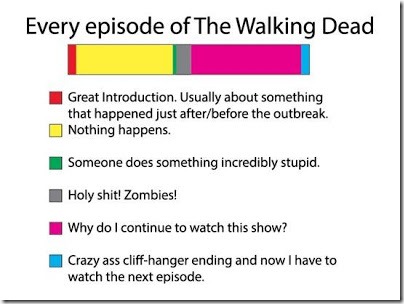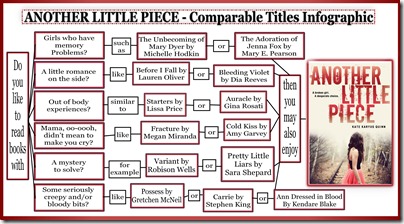by Diane Holmes, (a) Chief Alchemist of Pitch University, (b) lover of learning, and (c) writer of fiction, non-fiction, and the occasional manifesto.
#1 Put Butt In Chair

WritersMarket.com shows you How to Get a Book Published
The writer’s experience. Ah, good times.
#2 Curvaceous Story Structure
This is your story. This is your story in conflict. This is your story over time. Any questions?
#3 Your Brand Is Your Best Story
Storytelling: what is it and how to do it all in one infographic. It’s like a college class in 5 minutes.
#4 Zombie Critique – Time-Line Method

Also see beautiful Zombie Death and Dispatch infographics and super-awesome Zombie skull-graphic. Want more? Many more HERE.
#5 All Roads Lead to You

Incredible, engaging marketing tool that invites potential readers to learn more about themselves, be true to their personal taste, and agree that, why, yes, your book IS perfect for them.
(Bonus: Also, check out 4 Best Writer’s Block Infographics)
Ode to an Infographic
A well-designed infographic uses images to convey importance size, scope, concepts, relationships, power, trajectory, speed (and even humor) instead of using words.
While most infographics do use words, the picture element does not just illustrate exactly what the words say. Instead, the illustration is the main message.
With a great infographic, you can gain a complex understanding in an instant. You can stand back, be global at the same time that you also get up-close-and-personal with the details.
Best yet….
Readers are engaged and asked to take action (spatially follow along). A well-designed infographic is an interactive stroke of genius.
Do You Have an Infographic?
- For your novel?
- For your business?
- For your marketing strategy?
- For your clients?
- For self-motivation?
- For further education and understanding?
- To save your sanity?
- To sum up the hilarity your average day?
- To figure out exactly what it is you do or know?
- To mourn all the things you don’t know?
- To make better decisions?
- To show just how you’ll kick ass in 2013?
You could, you know….
—
![clip_image001[4] clip_image001[4]](http://freelance-zone.com/blog/wp-content/uploads/2012/11/clip_image0014.jpg) Diane writes two columns for Freelance-Zone: (1) Fiction-Zone: Leaps in Fiction Mastery and (2) Marketing-Zone: Marketing Yourself and Your Writing.
Diane writes two columns for Freelance-Zone: (1) Fiction-Zone: Leaps in Fiction Mastery and (2) Marketing-Zone: Marketing Yourself and Your Writing.

![clip_image001[4] clip_image001[4]](http://freelance-zone.com/blog/wp-content/uploads/2012/11/clip_image0014.jpg) Diane writes two columns for Freelance-Zone: (1) Fiction-Zone: Leaps in Fiction Mastery and (2) Marketing-Zone: Marketing Yourself and Your Writing.
Diane writes two columns for Freelance-Zone: (1) Fiction-Zone: Leaps in Fiction Mastery and (2) Marketing-Zone: Marketing Yourself and Your Writing.



